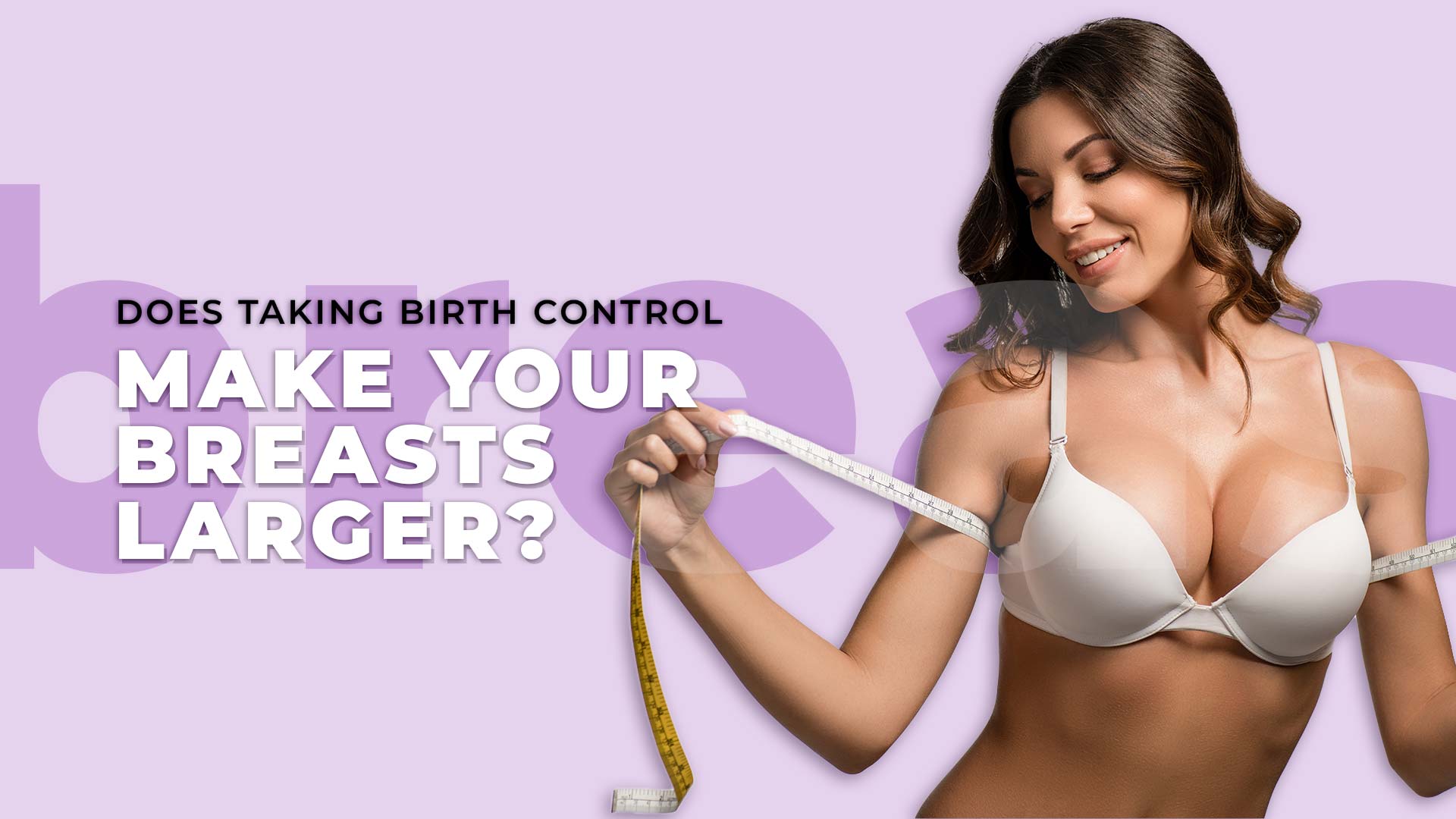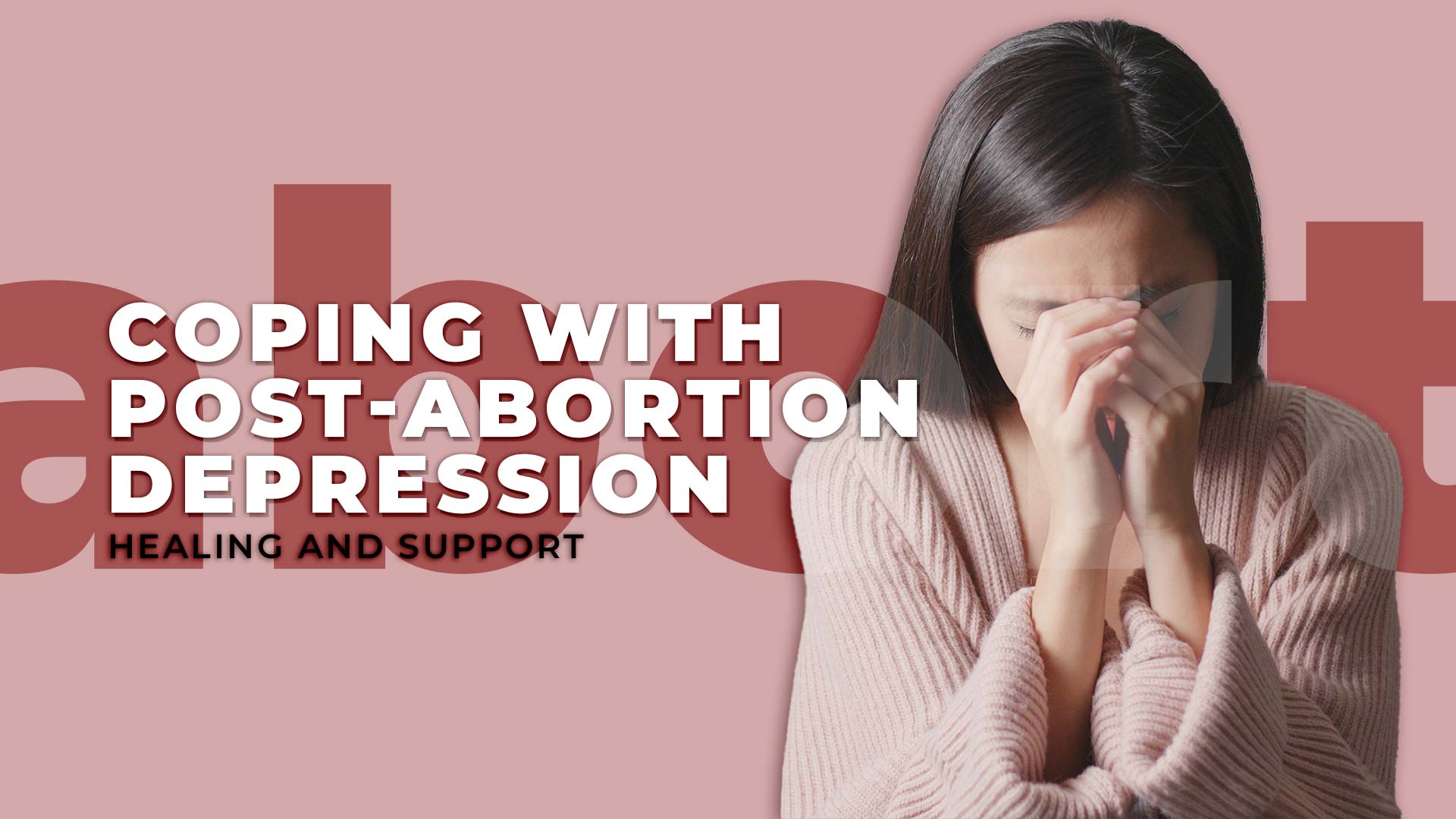Birth control is any method, device, or medication to prevent pregnancy. It gives people more control over their reproductive health and family planning by avoiding or delaying pregnancy. Birth control can come in various forms, such as hormonal pills, intrauterine devices (IUDs), barrier methods like condoms and diaphragms, and natural ways like tracking menstrual cycles.
One common myth surrounding birth control is that it can increase breast size. While some people may experience changes in their breast size while using hormonal birth control, it is not a guaranteed or universal side effect. Hormonal birth control may cause temporary breast tenderness or swelling but does not permanently increase breast size. Any changes in breast size are generally due to fluctuations in hormone levels or weight gain/loss rather than the birth control method itself. It is essential to consult with a healthcare provider about the potential side effects of any birth control method before starting its use.
Does Birth Control Make Your Breasts Bigger?
There is a common belief that hormonal birth control, such as the Yasmin pill, can make breasts bigger. However, this is a myth that has been perpetuated over time. While hormonal birth control may cause temporary breast tenderness or swelling, it does not lead to permanent breast enlargement.
The Yasmin pill is a combination birth control pill containing estrogen and progestin hormones.[1] These hormones work together to prevent pregnancy by inhibiting ovulation and altering the cervical mucus to prevent sperm from reaching the egg.[2] However, the hormonal effects of birth control pills can vary from person to person.
Some women may experience temporary breast tenderness or swelling during the first few weeks of starting the Yasmin pill. This is because the hormones in the pill can cause fluid retention in the breast tissue, leading to a feeling of fullness or tenderness.[3] However, this effect is usually temporary and tends to resolve over time. It is not a guarantee that the breasts will permanently increase in size. Moreover, not all women who use the Yasmin pill will experience breast tenderness or swelling. Additionally, any changes in breast size are likely to be minor and temporary. A healthcare provider should evaluate any significant changes in breast size to rule out any other underlying medical conditions.
While the Yasmin pill may cause temporary breast tenderness or swelling, it is unreliable for increasing breast size. It is always advisable to consult with a healthcare provider before starting any birth control method to discuss potential side effects and determine the best option for you.
Which Types of Birth Control Affect Breast Size?

Hormonal birth control methods can potentially cause an increase in breast size, but this is not always the case. The hormonal birth control options containing estrogen and progestin, such as the combination pill, patch, and ring, have been associated with breast enlargement as a possible side effect. Similarly, progestin-only options like the Depo-Provera shot, Nexplanon implant, and hormonal IUDs like Mirena and Skyla have also been linked to breast enlargement in some women.
Higher levels of estrogen and progestin in a birth control method can potentially lead to more noticeable changes in breast size. However, it is essential to note that the amount of hormones in each brand of birth control can vary, and not everyone will experience the same side effects. Some women may experience a slight increase in breast size, while others may not notice any changes.
It’s also worth noting that breast enlargement is not a common side effect of hormonal birth control, and when it does occur, it is usually mild and temporary. In most cases, breast size changes will return to normal once a woman stops using hormonal birth control.
On the other hand, non-hormonal birth control methods like copper IUDs, male and female condoms, sponges, cervical caps, diaphragms, and spermicides do not cause changes in breast size. These methods work by physically blocking or killing sperm rather than altering the hormonal balance in the body.
Overall, while hormonal birth control methods can potentially cause an increase in breast size, this is not a guaranteed side effect. The extent of any changes can vary depending on the individual and the specific method used. Women concerned about breast size changes should talk to their healthcare provider about their options and any potential side effects.
How Long Will My Breasts Be Bigger?
The effects of birth control on breast size can vary widely from person to person. While some people may experience a noticeable increase in breast size using hormonal contraceptives, others may not notice any changes.
Generally, breast enlargement is most likely to occur when starting a new contraceptive method, particularly those that contain high doses of estrogen and progestin. These hormones can cause the breast tissue to retain fluid, leading to temporary swelling and increased breast size.
However, over time, any changes in breast size caused by hormonal birth control may diminish or even disappear. In some cases, breast enlargement may continue to be a side effect, but the extent of the growth tends to be mild and not permanent.
If you are concerned about breast enlargement as a side effect of hormonal birth control, there are a few options you can consider. Firstly, you may want to explore non-hormonal birth control methods, such as condoms, diaphragms, or copper IUDs, which do not contain hormones and therefore do not impact breast size.
Alternatively, you could speak to your healthcare provider about low-dose birth control options. Birth control pills with lower doses of estrogen and progestin are less likely to cause breast enlargement. For example, progestin-only and combination birth control pills with no more than 20 micrograms (mcg) of estrogen may better fit some individuals concerned about breast growth.
Ultimately, the choice of birth control method is personal, and the best option for you will depend on a range of factors, including your medical history, lifestyle, and preferences. Your healthcare provider can work with you to find a method that meets your needs and minimizes unwanted side effects.
Can Birth Control Make People Gain Weight?
Hormonal birth control can potentially cause weight gain in some people. This is because these contraceptives contain synthetic versions of the hormones estrogen and progestin, which can impact the body’s metabolism and cause fluid retention. However, note that weight gain is not a guaranteed side effect of using hormonal birth control, and not everyone who uses these contraceptives will experience weight changes.
While weight gain can be a potential side effect of the hormonal pill, it’s essential to remember that many factors, including diet, exercise, and genetics, can impact weight. The risk of weight gain may be higher for people who are already overweight or have a history of weight fluctuations, as well as those predisposed to weight gain due to genetics or other factors. Additionally, the amount of hormones in the pill may influence the likelihood of weight gain, with higher doses of estrogen and progestin potentially having a more significant impact on weight. It can be challenging to determine whether any weight changes are directly related to the Yasmin pill or due to other factors.
If you are concerned about weight gain as a potential side effect of the Yasmin pill, there are several steps you can take. Firstly, you can talk to your healthcare provider about your concerns and explore alternative birth control options, such as non-hormonal methods like condoms or copper IUDs. Additionally, you can focus on maintaining a healthy diet and exercise routine, regardless of which type of birth control you use. This can help minimize the risk of weight gain and promote overall health and well-being.
While weight gain is a potential side effect of hormonal contraceptives, it’s not a guaranteed outcome. Working with your healthcare provider and prioritizing healthy habits can help minimize potential side effects and ensure you use the birth control method that best meets your needs.
How Do Birth Control Pills Work?
The Yasmin pill is a type of combination birth control pill, which means it contains two types of synthetic hormones: estrogen and progestin. These hormones work together to prevent ovulation, which is the release of an egg from the ovary.
By preventing ovulation, the Yasmin pill is highly effective at preventing pregnancy. During a normal menstrual cycle, levels of estrogen and progestin fluctuate in the body. These hormonal changes trigger the release of an egg from the ovary, which can then be fertilized by sperm if intercourse occurs. When someone takes the Yasmin pill as directed, the synthetic hormones in the pill mimic these natural hormonal changes in the body. However, the levels of estrogen and progestin in the pill are carefully balanced to prevent ovulation from occurring.
In addition to preventing ovulation, the Yasmin pill thickens the cervical mucus. This makes it more difficult for sperm to travel through the cervix and reach the uterus, where fertilization can occur. Additionally, the Yasmin pill changes the lining of the uterus, making it less hospitable to a fertilized egg. If an egg is fertilized, it may not be able to implant in the uterine lining and develop into a pregnancy.
To be effective, the Yasmin pill must be taken consistently and according to the prescribed schedule. This means taking one pill each day simultaneously for the entire pill pack. It’s also important to start each new pill pack on time, as directed by the healthcare provider. While the Yasmin pill is a highly effective method of contraception when used correctly, it may not be appropriate for everyone. People with certain medical conditions or risk factors, such as a history of blood clots or breast cancer, may need to explore alternative birth control options.
How Hormones Affect Your Body?

Hormones are chemical messengers produced by the body’s endocrine glands. They travel through the bloodstream to various organs and tissues, binding to specific receptors and triggering multiple physiological responses. Estrogen and progesterone are the main hormones in the menstrual cycle and fertility. The ovaries produce these hormones and regulate the uterus’s growth and development, the egg’s maturation, and the uterus’s preparation for potential implantation.
Estrogen is responsible for developing female secondary sexual characteristics, such as breast growth and widening hips. It also affects bone density, skin health, and cognitive function. Estrogen levels fluctuate throughout the menstrual cycle, peaking just before ovulation. Progesterone prepares the uterus for implantation and maintains the pregnancy if fertilization occurs. It also helps to regulate the menstrual cycle and prevent excessive growth of the uterine lining. Progesterone levels increase after ovulation and decrease just before menstruation.
Hormones also affect many other bodily functions, including metabolism, mood, and stress response. For example, cortisol is a hormone that is produced by the adrenal glands in response to stress. It helps to regulate blood sugar levels and blood pressure and can also affect immune function and inflammation.
Imbalances in hormone levels can lead to various health problems, including infertility, irregular menstrual cycles, and mood disorders. Hormonal contraceptives, such as birth control pills, regulate the levels of estrogen and progesterone in the body to prevent ovulation and pregnancy. In some cases, hormone therapy may address hormonal imbalances or deficiencies. For example, women who experience menopausal symptoms may be prescribed estrogen therapy to alleviate symptoms such as hot flashes and vaginal dryness.
Are There Other Effects of Taking Birth Control?
There are other effects of taking birth control in addition to preventing pregnancy. These effects can vary depending on the type of birth control and the individual’s body. Some of the expected effects of taking birth control include the following:[4]
- Reduced menstrual cramps and pain: Birth control pills can help to reduce the intensity and duration of menstrual cramps and pain. They can also help to regulate the menstrual cycle, making periods more predictable.
- Reduced acne: Hormonal birth control can help to reduce acne in some individuals by regulating hormone levels.
- Reduced risk of ovarian and endometrial cancer: Long-term use of some forms of birth control, such as the combination birth control pill, can lower the risk of ovarian and endometrial cancer.
- Increased risk of blood clots: Some forms of birth control, particularly those that contain estrogen, can increase the risk of blood clots. This risk is higher for individuals who smoke or have a history of blood clots.
- Mood changes: Hormonal birth control can affect mood in some individuals, leading to symptoms such as depression, anxiety, or irritability. However, the effects on mood can vary significantly between individuals.
- Changes in libido: Some individuals may experience a decrease in libido while taking hormonal birth control, while others may experience an increase.
- Nausea: Nausea is a common side effect of hormonal birth control, particularly in the first few months of use.
- Weight gain: While weight gain is not a universal side effect of hormonal birth control, some individuals may experience an increase in weight while taking birth control.
It’s important to discuss the potential side effects of birth control with a healthcare provider and weigh the benefits and risks of each type of birth control. Sometimes, a healthcare provider may recommend trying different types of birth control to find one that works best for an individual’s body and lifestyle.
Risk Factors

When considering birth control options, it’s essential to consider certain risk factors that can affect an individual’s health. These risk factors can vary depending on the type of birth control and the individual’s medical history. Age can be a risk factor as certain types of birth control can increase the risk of blood clots, particularly in older individuals. Smoking can also increase the risk of blood clots, so individuals who smoke should avoid hormonal birth control containing estrogen. Those with a history of blood clots or a family history of blood clots may also be at higher risk while taking hormonal birth control.
Individuals with high blood pressure or migraines with aura may need to monitor their blood pressure regularly and discuss the risks and benefits of hormonal birth control with their healthcare provider. Those with a history of breast cancer or liver disease should also consult their options with a healthcare provider. It’s important to discuss any risk factors with a healthcare provider when considering birth control options. In some cases, non-hormonal options or low-dose hormonal birth control may be recommended to minimize risks.
The Final Thoughts
While birth control can effectively prevent pregnancy, it’s crucial to prioritize individual health and consider any potential risks. By working with a healthcare provider, individuals can make informed decisions about their birth control options and ensure that they are using a method that is both effective and safe for their unique needs and medical history.
References
- Fathizadeh N, Bafghi RK, Boroumandfar K, Savabi M. Comparing the effects of Yasmin® and LD (low-dose estrogen) as contraceptive methods on menstrual cycle changes in women referred to the health care centers of Isfahan. Iran J Nurs Midwifery Res. 2010 Fall;15(4):252-8. PMID: 22049290; PMCID: PMC3203286. https://www.ncbi.nlm.nih.gov/pmc/articles/PMC3203286/
- Casey, F.E. (2023) Hormonal methods of contraception – women’s health issues, MSD Manual Consumer Version. MSD Manuals. Available at: https://www.msdmanuals.com/en-in/home/women-s-health-issues/family-planning/hormonal-methods-of-contraception
- Birth control and breast size: What you need to know (no date) WebMD. WebMD. Available at: https://www.webmd.com/sex/birth-control/birth-control-breast-size
- Estrogen and progestin (oral contraceptives): Medlineplus Drug Information (no date) MedlinePlus. U.S. National Library of Medicine. Available at: https://medlineplus.gov/druginfo/meds/a601050.html





